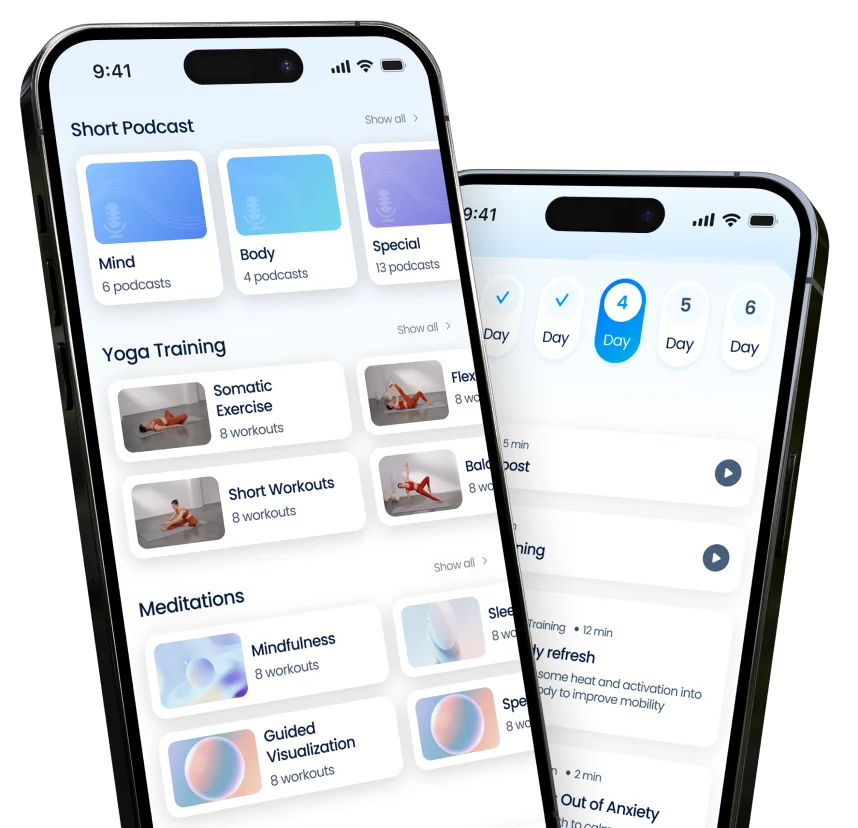50+ Affirmations for Teens

The teenage years can be a rollercoaster of emotions and experiences. As adolescents navigate this challenging period, they often encounter negative thoughts about themselves. That’s where affirmations come in. These powerful statements, when repeated regularly, can help teens overcome self-sabotaging thoughts and build resilience.
Positive affirmations offer numerous benefits for teenagers, including decreased stress, improved academic performance, and increased self-worth. By incorporating these into their daily routine, teens can reshape negative thoughts, encourage openness to change, and boost their overall well-being. Whether you’re looking for words of affirmation for men, women, or kids, positive statements can be tailored to suit anyone’s needs.
Key takeaways
- Encouraging self-statements are potent instruments that can aid teenagers in enhancing self-assurance, improving mental well-being, and boosting academic achievements.
- Regular practice of empowering phrases can reshape pessimistic thought patterns and stimulate the brain’s reward centers, resulting in better mood and decreased stress.
- Various types of uplifting declarations target specific areas, including self-worth, goal setting, resilience, and mindfulness.
- Implementing these self-affirming techniques effectively involves creating personalized statements, establishing a consistent routine, and overcoming initial resistance.
- Parents and educators play a crucial role in supporting teens by modeling constructive self-talk, teaching effective self-empowerment practices, and providing resources for personal growth.
Understanding positive affirmations for teens
What are positive affirmations?
These are short, positive statements that individuals repeat to themselves to overcome negative and self-sabotaging thoughts. For teenagers, these statements can be particularly beneficial as they navigate body image issues, academic pressures, and social relationships. Here are two examples of good affirmations for young people:
I am capable of learning and achieving great things
I love and accept my body as it is
By including such statements into their daily routine, adolescents can develop a more positive self-image and cultivate mental resilience.
The science behind self-affirmations
Research supports the effectiveness of self-statements in improving mental well-being and performance. Studies show that positive self-talk activates the brain’s reward centers, releasing neurotransmitters like dopamine and serotonin. This neurochemical response can lead to improved mood, reduced stress, and enhanced cognitive function.
Also, self-statements have been linked to increased problem-solving abilities and improved academic performance in young people. By regularly practicing affirmations, teenagers can rewire their thought patterns, leading to long-term positive changes in their beliefs and behaviors.
Benefits of positive affirmations for teens
Positive statements offer numerous advantages for teenagers, helping them navigate the challenges of adolescence.
Boosting self-confidence
Daily affirmations for teens play a crucial role in developing a positive self-image and boosting confidence. By repeating phrases like “I am enough” or “I believe in my abilities,” young people reinforce their self-worth and strengthen their belief in their capabilities. This practice encourages self-acceptance and helps them feel more assured in their decisions and actions.
Improving mental health

Words of affirmation for teens can be great for reducing stress and anxiety. By reshaping negative thoughts and feelings, these positive statements promote overall well-being. Phrases such as “I can get through anything” or “Everything is the way it’s supposed to be” help in managing stress and fostering resilience. Regular use of affirmations can lead to improved mood and a more optimistic outlook on life.
Enhancing academic performance
Positive self-talk can have a significant impact on academic success. Affirmations like “I am capable of learning new things” or “I embrace challenges as opportunities for growth” can boost motivation and confidence in educational settings. This practice can lead to improved focus, better study habits, and ultimately, enhanced academic performance.
Strengthening relationships
Affirmations can also play a role in improving interpersonal relationships. By fostering self-love and acceptance, young people are better equipped to form healthy connections with others. Statements like “I am worthy of respect and kindness” or “I communicate effectively with others” can help teenagers develop stronger social skills and build more meaningful relationships with peers and family members.
Types of positive affirmations for teens

Statements for teens come in various forms, each targeting specific aspects of personal growth and well-being. These powerful statements can be tailored to address different areas of a teenager’s life, providing support and encouragement.
Self-worth and body image
Self-worth and body image affirmations help young people develop a positive self-image and boost their confidence. These statements focus on embracing one’s unique qualities and fostering self-acceptance. Examples include:
I love and accept my body as it is.
My self-worth isn’t defined by societal standards.
I’m beautiful inside and out.
I embrace my flaws because nobody’s perfect.
By repeating these words of affirmation, teenagers can cultivate a healthier relationship with their bodies and develop a strong sense of self-worth.
Goal setting and motivation
Affirmations centered on goal setting and motivation empower young individuals to pursue their ambitions with determination. These statements help foster a sense of purpose and drive. Some examples are:
I’m capable of achieving my goals.
Every day, I’m getting closer to my dreams.
I have the power to create positive change in my life.
My efforts lead to success.
These daily affirmations for teens can boost their motivation and help them stay focused on their objectives, both in academic pursuits and personal growth.
Resilience and growth mindset
Affirmations that promote resilience and a growth mindset encourage teenagers to view challenges as opportunities for learning and personal development. These statements help build mental toughness and adaptability:
I can learn from my mistakes and grow stronger.
Challenges are opportunities for growth.
I’m resilient and can overcome any obstacle.
My abilities and intelligence develop through effort.
By incorporating these affirmations into their daily routine, young people can develop a more positive outlook on life’s challenges and setbacks.
Mindfulness and gratitude
Mindfulness and gratitude affirmations help teenagers stay present and appreciate the positive aspects of their lives. These statements foster a sense of contentment and emotional well-being:
I’m grateful for the good things in my life.
I choose to focus on the present moment.
I appreciate the small joys in each day.
My life is filled with abundance and opportunity.
Practicing these affirmations can help young individuals cultivate a more positive mindset and develop a greater sense of overall life satisfaction.
Implementing positive affirmations in daily life
Creating effective affirmations
To create effective statements:
- Focus on positive, present-tense statements that resonate with you personally.
- Make them specific, achievable, and centered on self-compassion and personal strengths. For example, instead of saying, “I hope to be good at math,” say, “I am capable of understanding and excelling in math.”
- Write down your affirmations and say them aloud using first-person pronouns to reinforce the message.
- Visualize yourself living out the affirmation to enhance its impact.
Establishing a daily routine
Consistency is key when implementing affirmations. Incorporate them into your daily routine by:
- Starting your day with positive statements.
- Repeating statements during significant moments
- Practicing at different parts of a day, for example:
- Look in the mirror each morning and say three positive things about yourself.
- Throughout the day, use affirmations in moments of need, such as before a test or when facing a challenge.
- At night, reflect on your experiences and frame them as positive statements.
This consistent practice helps internalize these empowering beliefs.
Overcoming challenges and resistance
It’s common to face resistance when starting an affirmation practice. To overcome these challenges:
- Start small: Begin with one or two affirmations and gradually increase.
- Be patient: Allow time for the practice to feel natural.
- Adjust as needed: Modify statements that don’t resonate with you.
- Address doubts: Acknowledge negative thoughts and reframe them positively.
- Track progress: Note improvements in your mindset and behavior.
Remember, the goal is to reshape negative thoughts and feelings. With persistence, you’ll notice reduced stress, improved performance, and better relationships with others.
The role of parents and educators
Parents and educators play a crucial role in supporting teenagers’ emotional well-being and personal growth. By incorporating positive affirmations into their interactions with young people, adults can help foster resilience, self-confidence, and a growth mindset.
Supporting teens with affirmations
As a parent or educator, you can support teenagers by encouraging the use of daily affirmations. Integrate words of encouragement into your conversations and help young people develop a habit of positive self-talk. Here are some effective ways to support teens:
- Model positive self-talk: Demonstrate the use of statements in your own life.
- Create a supportive environment: Encourage open communication and validate their feelings.
- Personalize affirmations: Help teens craft statements that resonate with their specific challenges.
- Reinforce positive behaviors: Acknowledge and praise their efforts and achievements.
- Provide resources: Share books, apps, or websites that offer age-appropriate affirmations.
Teaching affirmation practices
Educating teenagers about effective affirmation practices enhances their ability to benefit from this powerful tool. Here are some key strategies to teach:
- Choose present-tense statements: Encourage teens to phrase affirmations in the present, such as “I am capable” rather than “I will be capable”
- Focus on specific goals: Help them create affirmations that target particular areas of improvement or desired outcomes
- Use positive language: Teach the importance of framing statements positively, avoiding negative words or phrases
- Practice consistency: Emphasize the need for regular repetition to reinforce positive beliefs
- Combine with visualization: Guide teens to imagine themselves embodying their statements
- Write it down: Encourage journaling or creating visual reminders of their chosen affirmations
- Address resistance: Discuss common challenges and strategies to overcome initial skepticism or discomfort
By teaching these practices, you equip young people with valuable tools for building self-esteem and maintaining a positive outlook throughout their teenage years and beyond.
Conclusion
Positive affirmations are powerful tools for teens navigating the challenges of adolescence. By incorporating these empowering statements into your daily routine, you can boost confidence, improve mental health, and enhance academic performance. Remember that consistency is key when practicing affirmations. Start small, be patient, and track your progress. With time and dedication, you’ll rewire negative thought patterns, fostering resilience and a growth mindset. Parents and educators play a vital role in supporting this journey. By embracing positive affirmations, you’re taking a significant step towards personal growth and emotional well-being, setting the foundation for a brighter future.








